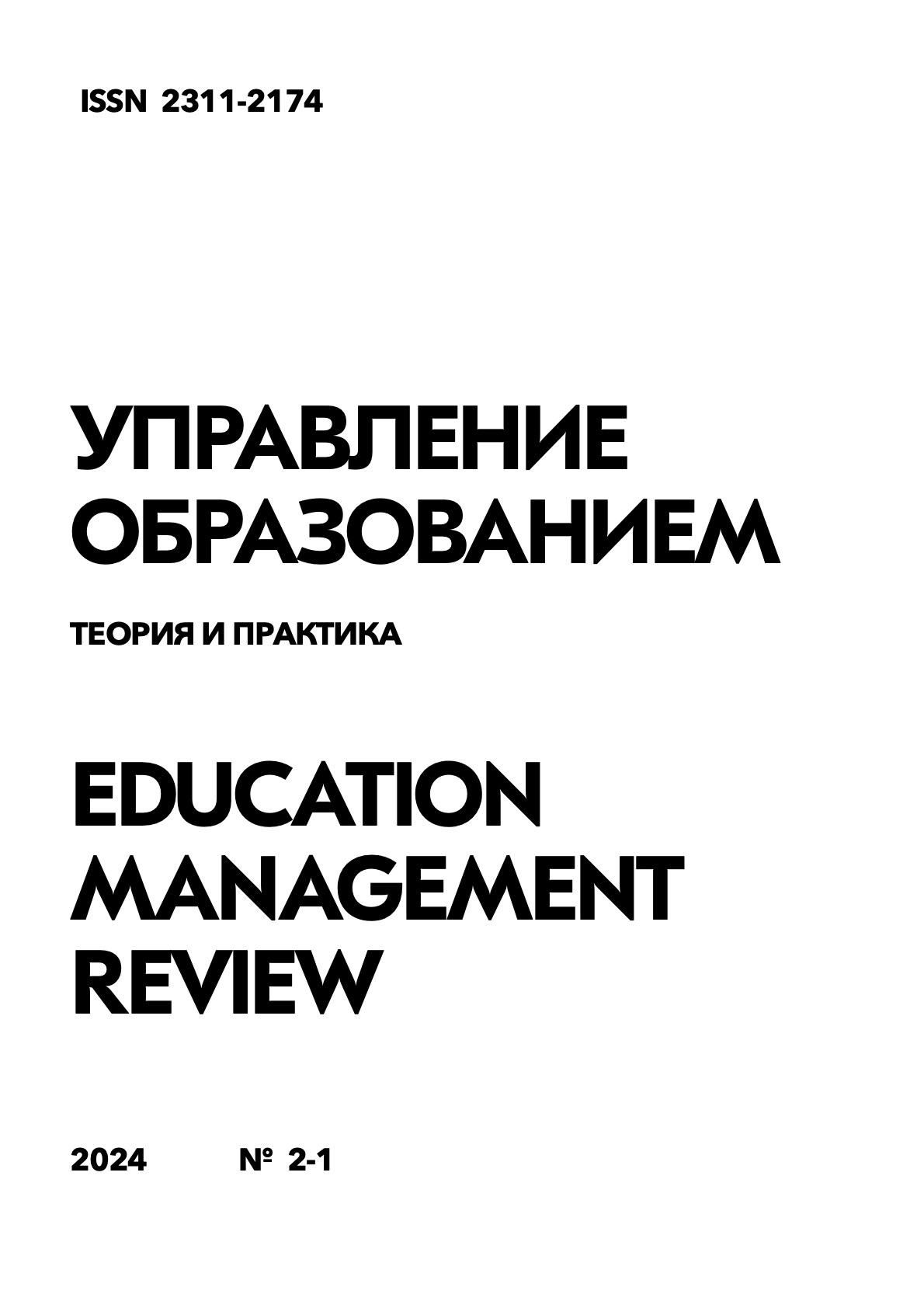Integration of the English language into the professional training of students of non-linguistic specialties: an interdisciplinary approach
DOI:
https://doi.org/10.25726/r6263-8293-7031-bKeywords:
interdisciplinary approach, integration, English, vocational training, non-linguistic university, foreign language communicative competence, CLILAbstract
This article examines the issue of integrating the English language into the professional training of students of non-linguistic specialties using an interdisciplinary approach. The relevance of this topic is due to the increasing role of the English language as lingua franca in the context of globalization and the need for future specialists to develop foreign language communicative competence for successful professional activity at the international level. The aim of the study is to develop and test a model for integrating English into the educational process of non-linguistic universities based on an interdisciplinary approach. The theoretical and methodological basis of the research was the works of domestic and foreign scientists in the field of linguodidactics, pedagogy, psychology, as well as regulatory documents in the field of higher education. The empirical base consists of the results of experimental work conducted on the basis of 5 non-linguistic universities of the Russian Federation (n=378). In the course of the study, methods of theoretical analysis, modeling, pedagogical experiment, questionnaire, testing, and mathematical statistics were used. A model of the integration of the English language into the educational process of non-linguistic universities has been developed and tested, including targeted, substantive, procedural and performance-evaluation blocks. The principles of selection and structuring of the training content are defined: professional orientation, interdisciplinarity, problemativeness, situationality. The technology of integrated subject-language learning (CLIL) is proposed, implemented through active and interactive methods. A set of pedagogical conditions has been identified that ensure the effectiveness of the model: motivational support of the educational process, organization of learning within the framework of a communicative-activity approach, immersion in an authentic language environment, systematic control of the level of formation of foreign language communicative competence. The results of experimental work confirmed the effectiveness of the developed model: the proportion of students in the experimental group who reached the advanced level (B2-C1) increased by 34.7%, while in the control group the increase was only 12.5%.
References
Ачкасова Н.Н. Формирование навыков самостоятельной работы студентов на занятиях по английскому языку как средство включения их в непрерывное самообразование // Мир науки, культуры, образования. 2022. № 6(97). C. 10-12.
Бажутина М.М. Мультимедийный тезаурус: опыт разработки и перспективы использования в инженерном образовании // Высшее образование в России. 2021. Т. 30. № 1. С. 73-86.
Виноградова Е.Н., Клобукова Л.П. В поисках золотой середины: дистанционное обучение онлайн и офлайн // Вестник Российского университета дружбы народов. Серия: Вопросы образования: языки и специальность. 2018. № 2. C. 195-209.
Воропаева В.А. Учебно-методическое пособие для выполнения контрольных работ по дисциплине «Иностранный язык (английский)» для студентов направления подготовки инженерного института заочной формы обучения. Мичуринск-наукоград: Изд-во ФГБОУ ВО МичГАУ, 2015.
Ежова Т.В., Воронежьева О.В. Виртуальная среда как фактор эффективного обучения иностранному языку // Вестник науки. 2021. № 5(38). C. 34-42.
Кондрахина Н.Г, Южакова Н.Е. Дидактические основы интеграции комплекса медиаматериалов в процессе обучения иностранному языку в вузе // Мир науки, культуры, образования. 2022. № 1(92). C. 44-47.
Королева Н.В. Инновационные педагогические технологии обучения студентов неязыковых специальностей английскому языку с применением электронных тренажеров // Известия Тульского государственного университета. Педагогика. 2020. № 4.
Котенко В.В. Проблемы и возможности применения технологий дополненной и виртуальной реальности в преподавании иностранного языка // Ученые записки университета им. П.Ф. Лесгафта. 2020. № 3(181). C. 252-258.
Манаенкова М.П. Специфика технологии формирования речевой компетентности обучающихся неязыкового вуза // Современные педагогические технологии в организации образовательного пространства региона: сб. мат. Обл. науч.-прак. конф. Мичуринск, 2018. С. 46-51.
Мусаелян И.Ф. Контроль как основа эффективного обучения иностранному языку студентов неязыковых вузов // Мир науки, культуры, образования. 2022. № 2(93). C. 48-51.
Нуртдинова Л.Р. Методическая организация учебного материала для программ по обучению профессиональному иностранному языку с применением виртуальной реальности // Педагогика и психология образования. 2020. № 1. C. 106-115.
Перчаткина В.Г., Зиятдинова Ю.Н. Современные онлайн приложения и их роль в саморазвитии студентов вуза в процессе иноязычной подготовки // Национальная ассоциация ученых. 2023. № 86. C. 39-42.
Полякова Т.Ю. Основные направления развития системы подготовки по иностранному языку в неязыковых вузах // Вестник Московского государственного лингвистического университета. Образование и педагогические науки. 2019. Вып. 1(830). С. 9-19.
Санакоева З.Г. Эффективные методы и стратегии преподавания иностранных языков в разноуровневых группах // Мир науки, культуры, образования. 2023. № 1(98). C. 62-64.
Хохлова Д.И., Калиниченко В.Ю. Применение цифровых технологий в обучении иностранным языкам // Modern Science. 2019. № 12-3. C. 355-359.
Цепилова А.В. Специфика формирования иноязычной профессионально-коммуникативной компетентности будущих инженеров в вузе // Научно-педагогическое обозрение. 2019. Вып. 1(23). С. 101-106.




